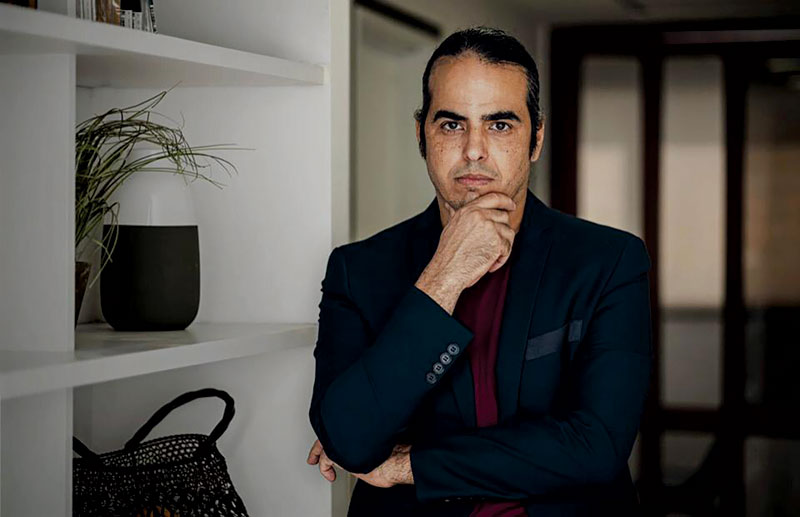
Dor Shachar speaks no English, but has spent many nights over the past year around Los Angeles sharing his story of a torturous upbringing as a Muslim kid in Gaza. Spoiler: He runs away to Israel, converts to Judaism and creates a new family. He is not in touch with anyone he knew before the age of 13. This account is based on the Journal’s two separate interviews with Shachar and four separate retellings of his story around Los Angeles in 2024 (each with a translator). This is his story of choosing a life of peace and love, while also struggling for security, and spreading a message of vigilance.
Dressed in a teal V-neck shirt, jeans and green Brooks running shoes, Shachar’s an affable guy who speaks with grand physical gestures and occasionally makes imitative noises. It’s how he paints the stories for audiences that don’t speak Hebrew, nor his native Arabic. Shachar eagerly offered to share the story about his upbringing in Gaza. He was also adamant in providing his own perspectives on the Israel-Hamas war.
“I’m happy to share with you the real story about what’s happening in Gaza,” Shachar told The Journal.
Shachar was born in 1977 into a Muslim Palestinian family who named him Ayman Abu Subo. He was one of his five brothers. The family lived a comfortable life in a nice house in Khan Yunis in the Gaza Strip. His earliest memory, at age three, involves three things: His love of candy, going to an open air market with his mother, and seeing a decapitated head roll down the road “like a bloody soccer ball.” The image would sear into his mind forever, but it would still be several years before he understood that the head belonged to someone who was likely punished for suspicion of being a collaborator with the Israeli Defense Forces. Throughout his childhood, Shachar routinely saw the torture and public execution of suspected collaborators.
Crossing into Israel from Gaza was easy until 1982, although Shachar didn’t cross the border until many years later. As a kid, he played pickup soccer with Israeli soldiers stationed in Gaza; from time to time, they gave him candy. That treat ended when Shachar enthusiastically showed the Israeli candy to his father and asked him where to get more. Appalled by the Hebrew writing on the packaging, his father warned that the Jews could have poisoned the candy — quite a lot to take in for a kid who hadn’t even entered first grade.
The indoctrination was pervasive, extending from home to school. The refrain he heard was that “Jews have three legs, that’s why they walk differently than you; Jews are murdering men, women, and children; Jews took away the land from your grandparents; you need to murder the Jews until the last drop of their blood.” Shachar then said a familiar word: “the biggest ‘mitzvah,’ the most rewarded thing you could do is to kill Jews.”
He recalled when he was 11 and felt quite sick. He asked his teacher if he could go to the restroom and wash his face. Instead, the young Shachar got sent to the principal’s office. The principal beat him with a wooden ruler, and instructed him to bring his father to school the next day. That night, Shachar told his mother what had happened.
“I told her, ‘I was beaten by my teacher and by my principal,’ and she said, ‘why?’” Shachar said. “I couldn’t even tell her why, but they wanted dad to come to school tomorrow morning to meet in the principal’s office.” Shachar’s father worked in Israel in the construction business. Despite working and profiting in Israel for 27 years, Shachar’s father never seemed to relent on his virulent hatred of Israel and the Jewish people.
“My father … instead of being appreciative, he kept on talking about murdering,” Shachar said. His grandfather, too, would often explain that Jews had stolen their land, and it was their “duty as Palestinian Muslims to reclaim it.” Typically, his father stayed in Israel from Sunday through Friday. So when his father was summoned to the school on a work day because his son was “acting up,” he was none too pleased. Upon returning home that day, Shachar’s father affixed a noose to the living room ceiling. His father sat there dressed in Muslim Brotherhood attire — with only his eyes showing — and brandishing a large knife. His own father was about to conduct a mock-execution to teach him a lesson.
“I believed that I was about to die, that my father was about to kill me,” Shachar said. “I couldn’t breathe. Then I see my mother, who’s standing in the corner silently. She is forbidden from intervening. Thank God, my aunt walked in at the time and intervened. After, she was beaten.”
As punishment, Shachar was removed from school. The family owned 50 sheep, and his father forced him to become the family shepherd. He wasn’t even a teenager, but his dreams of one day becoming a doctor were over. On top of that, it would still be a regular occurrence for the young Shachar to be beaten by his father with a rubber whip. For six months, Shachar was out of school and tending to the sheep. And then out of nowhere, his father put him in boarding school.
“I still had the dream, I wanted to be a doctor, that was my dream, [my family] signed me up to go to a school in Gaza, run by the U.N.,” Shachar said. The school was run by the United Nations Relief and Works Agency (UNRWA). “The first class was studying the word ‘Palestine.’ This is how we studied math: ‘If there are five Jews and you murder three, how many are remaining?’” Any questioning of authority would lead to severe punishments. Their gym class, Shachar said, was “throwing stones at IDF soldiers.”
Shachar said after that, “we would pretend to go back to school and learn, and the soldiers would come into the school and we’d say, ‘Hey, there’s no terrorists here. We’re just students. We’re innocent students.’ They didn’t know, and we were taught that those Israeli soldiers are the real terrorists. I couldn’t deal with this. My soul was sick. I had internal pain. I frequently ran away from school towards the sea. I would sit on the beach next to an Israeli Army base, and the soldiers would come to me with all kinds of sweets and candies. It was really good chocolate — milk chocolate wafers.”
After a month of cutting class, his father found out and beat him, tied him to a tree, and doused him in cold water. Shachar would be locked in the bathroom for a whole night and forced to sleep on the floor.
He decided he couldn’t take any more of this treatment. Shachar snuck out of the house and, for the very first time, boarded a bus to Israel.
“I took a few things from my home and decided to travel to Rishon LeZion,” Shachar said. “I started looking for those Jews with a third leg. I couldn’t find them.”
When Shachar returned home to Gaza, his father confronted him: “You were in Israel, right?” Shachar admitted to it, and to his surprise, his father didn’t beat him that day. “My father didn’t do anything to me, didn’t even scream at me, I thought, ‘wow, how lucky I am to have a father who finally understands me.”
Shachar was wrong. At around 3:00 in the morning, he was woken up by his father and forced to work at a construction site with him in Israel — for four days a week. Despite fearing his father’s wrath, Shachar kept a curious eye on what else he could do in Israel. He still didn’t see any Jews with a third leg or third eye anywhere.
“Every day after working at the construction site, I used to look for a place where I could run to escape my father,” Shachar said. After three months of working with his father at the construction site in Israel, Shachar, now 13, ran away again, this time with no intention of ever returning to Gaza. “My father didn’t even look for me. I just didn’t hear from him again.”
It was 1990, and in many ways, this moment of rebellion was when Shachar became a bar mitzvah. To make ends meet, on his own, Shachar worked as a security guard in a neighborhood full of villas. One night, while he was taking a walk, he met Nissim, a Tunisian Jew. “The first question he asked me was, ‘Where is your father?’” Shachar said. “I told him, ‘I actually don’t have a father.’” To Shachar’s surprise, Nissim went home and came back about 30 minutes later with hot soup, food, clothes, and gifts.
“I was so happy,” Shachar said. Nissim would become not only Shachar’s first friend in Israel, his care gave Shachar his first taste of freedom, happiness, love and Judaism. Nissim was a religious Jew who took it upon himself to teach Shachar, as he continued to work in security for the next three years. Eventually, Shachar would move closer to Nissim’s home. Nissim knew that Shachar was from Gaza. He knew Shachar was a Muslim. Still, Shachar was routinely welcomed by Nissim and his family for dinner; sometimes they just watched television together.
During his third year on his own in Israel, at age 16, Shachar received an invite from Nissim to join his family’s Passover seder. “He bought me clothes for Passover, he said, ‘Shower and come to me at 7:30 p.m.'” Upon arrival, Shachar noticed that there was no couscous, no hummus, only some tasteless brittle bread. Shachar, who knew only rudimentary Hebrew, was quite confused.
“Maybe they’re on a diet?” he thought as he looked at all the strange food the Jews were eating at the seder table. Their hospitality and kindness were a welcome, eye-opening contrast to what he had been taught about Jews while growing up in Gaza. This particular seder was the first time Shachar heard the story of the Jews’ exodus from bondage in Egypt.
“I didn’t even know Hebrew, but what came out of my soul was ‘That’s it,’ I told him in Hebrew, ‘I want to be a Jew.’” Nissim told him, “we can’t mix religion, that’s just how people were born.” Nissim’s neighbor, an Iraqi Jew, advised Shachar that he could go to the Chief Rabbinate of Israel and ask to become a Jew. For three months, Shachar went on a daily trip to the office of the Chief Rabbinate. During this time, he got himself an earring because it was in style.
Shachar kept getting rejected for conversion by the Rabbinical authorities. He went to the offices of the Chief Rabbinate in Tel Aviv. From there he went to Ashkelon. Then to a Rabbi in Ramat Gan who looked at Shachar and said, “I’m going to convert you. All I want from you is a letter from your family that says that they’re happy with you converting to Judaism.” Shachar hadn’t spoken with his family in years and feared what they’d do to him if they ever learned of his desire to convert. The Rabbi advised Shachar to wait until he was 18 years old and free to do a conversion without parental consent. Still, it was mid-1992, there was an uptick slew of suicide bombings in Israel by young Palestinian terrorists.
“That was a very tough time,” Shachar said. “There were a lot of suicide bombs in the markets, coffee shops and restaurants, it was truly one of the toughest periods in Israel.”
Following the murder of 15-year old Helena Rapp by Bat Yam, an 18-year old Palestinian, the Israeli government made new labor laws that would put an end to Shachar’s time in Israel. A new security law said that Gazans “aged 16 to 20 would be permitted to work in Israel if they were married or the sole wage-earners in their families.” Shachar was only 17, unmarried, no family, and now illegally dwelling in Israel. It was only a matter of time before Israeli police would arrest him. After his arrest, Shachar made a desperate but earnest plea to the judge.
“I was taken by the police, and I told the court that I wanted to be a Jew.” Present in court awaiting their own moment before the judge sat other Palestinians who were facing trial because they too were in Israel illegally. They told Shachar, “We’re going to kill you.” The Israeli jailers separated Shachar from the rest of the Palestinians in jail, which meant he was in solitary confinement — for 45 days. Shachar was then deported back to the Gaza Strip, which he called his “worst nightmare.” When authorities in Gaza received information about the heresy Shachar committed in the Israeli court, it would begin seven months of pure anguish and torture.
“They tied my hands in the back, they put a bag on my head,” Shachar said. “While I was sitting, somebody pointed the gun to my head saying ‘if you try to escape, I’m going to shoot you in the head.’” He was terrified, wondering where they were taking him. “‘I’m taking you home, don’t worry,’” the Palestinian authorities said. A terrified Shachar was taken for interrogation.
“They put me in a room, locked the door and left,” Shachar said. “They left me like this crouching with the bag on my head. My instinct said, ‘I can’t hear anyone, there’s nobody there.’” He was not alone. He was beaten and kicked in the groin. His legs were tied. He was doused with hot and cold water. He was electrocuted. They took sadistic pleasure in slicing his skin with a knife.
“After about six months, they decided I had enough and they said they’d set me free,” Shachar said. “But the interrogator repeated to me exactly what I said in the Israeli court. It’s the exact same sentence. He said, ‘everybody who works in Israel, these are our intelligence,’ and that’s true. And then he asked me, ‘what about that earring in your ear? Why?’ I responded, ‘To not look Palestinian so that the Israelis don’t deport me. He began kicking, spitting on me on the floor and saying, ‘you need to be a proud Arab Muslim. You’re going to prison for another month for ‘posing as a Jew.’”
At this point in the interview, Shachar showed me his arms and pointed to the numerous laceration scars. To look at those scars and then look into this man’s eyes is an unsettling feeling. Shachar was remanded to his estranged family in Khan Yunis, and placed in house arrest. His father opened the door, seeing Shachar for the first time in half a decade, and denied that it was his son. At this point, he went on a rant, saying that if he had killed Jews —instead of desiring to convert—he’d be welcomed by his family with open arms.
“If the same things were done on Oct. 7, like when the terrorist called their parents and said ‘dad, I killed ten Jews — a husband and wife, check out the pictures that I sent.’ That father will say, ‘may God keep you.’ The mother would say, ‘I wish I could be there with you.’ That’s an honor in their eyes. My father, that’s what he wanted for me to be — a terrorist. After about a month of house arrest, was chucked out of the house. I was homeless. My neighbors are beating me up, as were the Palestinian police.”
Shachar had enough. Determined to escape Gaza again, he traveled through Egypt and Turkey, and snuck into Israel with a Palestinian Authority passport. At that point, he rejected the abuse, and decided become an Israeli and start life over — as a converted Jew.
He continued working in security, eventually starting his own business for installing alarms in people’s homes. There’s something fitting for a man who has endured such violence throughout his young life to dedicate his professional life to helping others feel safe.
In 2003, while still undergoing the conversion process, Shachar would meet his family of choice. He was 26 years old, and he shared his tumultuous story with one of his home security system clients. They immediately took him in as one of their own. To this day, he is considered their family. The Journal spoke with Shachar’s adoptive brother and sister, Johnny Meir Sabar and Naomi Sabar Neas. “We love it, we love him, we didn’t judge, this is our brother,” Naomi told the Journal. “He finally felt that he had a father and a mother.” Shachar felt supported and loved. “They took care of me and they taught me everything.”
“Our parents met him as a human being,” Johnny told The Journal. Naomi then looked to her adoptive brother and affectionately told Shachar, “everyone loves you, to know you, is to love you.” The adoration in these three siblings’ faces is difficult to put into words.
Around age 26, he dropped his Arabic name and took the Hebrew name Dor Shachar— “Dor” meaning “generation” and “Shachar” meaning “dawn” or “tomorrow.” It’s not just his name, but his mission.
Around the time of the 2005 Israeli disengagement from Gaza, Shachar’s adoptive father encouraged him to share his story more publicly. So he began by sharing details of his upbringing with IDF soldiers, to help them learn more about the unspoken realities of life in Gaza. “I give seminars and lectures before they go into Gaza to understand and realize what’s waiting for them over there,” Shachar said.
In 2021, at age 44, he met his future wife on Facebook. His opening line, delivered via direct message, “Hi I’m Dor Shachar,” was rebuffed. But two months later, they connected again, and met for beers on their first date; they are raising a one-year-old son (Shachar prefers not to share either of their first names). Today, he continues to run his security systems business, providing his community with a sentiment that eluded him for most of his life.
Despite all the turmoil he has endured, Shachar has an answer to what gives him hope. “Prayer, and trust in God,” Shachar said. “It gives me the power and the energy to continue and be strong to survive these times. When I was in prison for seven months, every day I went through torture, yet got my strength back. Every day, I know that’s a blessing. And of course, Shabbat.”
His life sounds fit for a Hollywood biopic. But it might be even more beneficial to make a documentary featuring Shachar’s present day-to-day life in Israel. And of course, perhaps a brave journalist could attempt to track down his abusive blood relatives.
The attacks of Oct. 7 rattled Shachar to the point that he knew he had to take his story of his horrific upbringing in Gaza to overseas audiences. “You must hear the truth about Gaza,” he said. “Not only for Israel’s security, but for the safety of the entire world.”
He implores people to watch news clips from the Christian Broadcast Network titled, “Inside the Gaza Summer Camps Training Children to be the Next Generation of Terrorists” and a video from The Free Press Journal titled, “Palestinians Allegedly Fake Getting Injured in Israel Attacks Using Makeup.” He provided dozens of photos allegedly depicting Palestinian grade school children cosplaying as Hamas hostage takers and committing mock executions. It’s a world that he openly talks about with firsthand experience, with hopes that more people will take these seeds of violent extremism seriously.
Shachar said he has no time for leisure — his focus remains on sharing as much as he can about the ongoing conflict. He just wrapped his second visit to the United States, with plans for another in the near future.
The Journal asked several more questions with Dor Shachar. The responses have been edited for length and clarity. Shachar’s words were translated in real time by his brother Johnny Meir Sabar.
JEWISH JOURNAL: Before Oct. 7, what was day-to-day life like for you?
DOR SHACHAR: People tried to live normal lives, but there were rockets falling for the last 15, 16 years. The problem is not the seventh of October, but the 16 years before that when they stabbed Jewish people, they shot people. There were always terrorists doing some kind of act in different places like running over, stabbing, shooting, et cetera. Rockets, the tunnels into Israeli territory providing terrorist smuggling. They slaughtered men, children, soldiers. They kidnapped soldiers. And Oct. 7 was the biggest hit because of the number of people that got killed. It’s the most significant, horrific attack when they brutally killed people. They had pregnant women; they opened their stomachs and killed as the mom was watching. They burned the babies alive. Then they shot her head, they tied up parents next to their children, and they burned the children in front of the parents’ eyes. They burned the kids and kidnapped the parents together.
JJ: How did you go about your daily life with so many people dismissing your concerns that Hamas terrorists would find a way to infiltrate Israel’s border with Gaza?
DS: In the past years, I had a bad feeling. I talk about how I grew up, what they taught me at school, and what could happen. [Israeli authorities] never listened to me, and that’s annoying. They thought the borders were impenetrable. ‘Our forces are too strong,’ ‘it’s impossible to cross the border. They thought that in Gaza, 90% of the people are okay. I say no. I say 99% are not. And they said ‘no, 90% are okay, they want peace, they just want work.’ That’s what they said.
JJ: What indications did you have that an attack was being planned?
DS: Everywhere, really. All these workers that come to Israel to work give information. When I was in the prison of Hamas, they told me that all the workers are very intelligent people that bring them information. There is something important you need to know. Two weeks before Oct. 7, they came to the border to the fence, they burned tires, and they burned fields. They told the government of Israel, if you want to be quiet, bring in 20,000 people to work in Israel—20,000 Palestinians going to Israel to work. And every day they come back home. On Friday they came in, stayed there, they were wearing uniforms like IDF soldiers with weapons, they looked like regular IDF soldiers. And on Saturday, they came into the fence, came into IDF camps like a base. They came to the festival, to the party. The police and army arrived to defend, they saw. So it was very confusing. And the people that were running, the kids that were in the party and were running around from the chaos, went closer to the soldiers. They thought it was IDF soldiers. The kids said, ‘help, help.’ And then they shouted, ‘yes.’ Why did it take seven hours until there were soldiers? They couldn’t make it for seven hours because the terrorists that were disguised were fighting our soldiers. They thought ‘oh it’s our soldiers,’ but it was not.
JJ: What would you do if you were Prime Minister?
DS: If I were Netanyahu or the commander, on Oct. 7, I would have attacked the same day. I would target Gaza, including Rafah, moving people to the south from above with airplanes. Not 24/7, but for three hours because, in 24 hours, they can get rockets via sea. I would give everyone three hours to gather their food, water, and go until I finish the work of bringing all the kidnapped people back alive and all the terrorists are dead. After finishing the work, I would not leave Gaza until the kidnapped people are returned and the terrorists are eliminated. The world might pressure Israel to get out of Gaza, but I would insist on an agreement that holds those responsible if any rocket falls on Israeli territory, threatening to erase them. The United States, Europe, Egypt, Jordan might pressure Israel, but I would demand an agreement ensuring responsibility for Israel’s security. I doubt anyone would sign such an agreement, but if they did, and a rocket was launched, Israel would retaliate decisively.
JJ: Why do you think Israel gets characterized as the aggressor in the media?
DS: I believe Israel must make it clear we want peace but are prepared to defend ourselves vigorously. I recalled the open borders from Gaza to Israel and the subsequent bombings, stating that Israel believed in peace, but faced suicide bombers in buses, restaurants, and malls, even on Passover night, killing families. I emphasized the ongoing brainwashing in Gaza and the spread of radical Islam, predicting a similar future for the United States.
JJ: What do you see as a potential for peace?
DS: Until the year 1982, there was some peace, people would work across the border, nobody bothered them. When the First Intifada began, if you pay attention, generation after generation becomes more difficult. The first generation used to throw rocks. Second generation used to stab. The third generation used to shoot civilians and soldiers. Fourth generation used to put on explosive belts and run into buses and say, ‘Allahu akbar.’ The fifth generation would launch rockets. And the sixth generation went into homes on Oct. 7 and killed in the most brutal way.
JJ: The cry to “free Palestine … from Hamas” — is this something you think anyone in Gaza desires?
DS: Whoever chose Hamas, it’s the majority. I see pictures and videos of people demonstrating to release Palestinian civilians from Hamas — Hamas, who they chose. If they were really good citizens, they would be coming out to the streets demonstrating against what Hamas did to the Jews on Oct. 7.
For more about Dor Shachar, he encourages readers to connect with him on TikTok, Instagram, X, or Facebook.














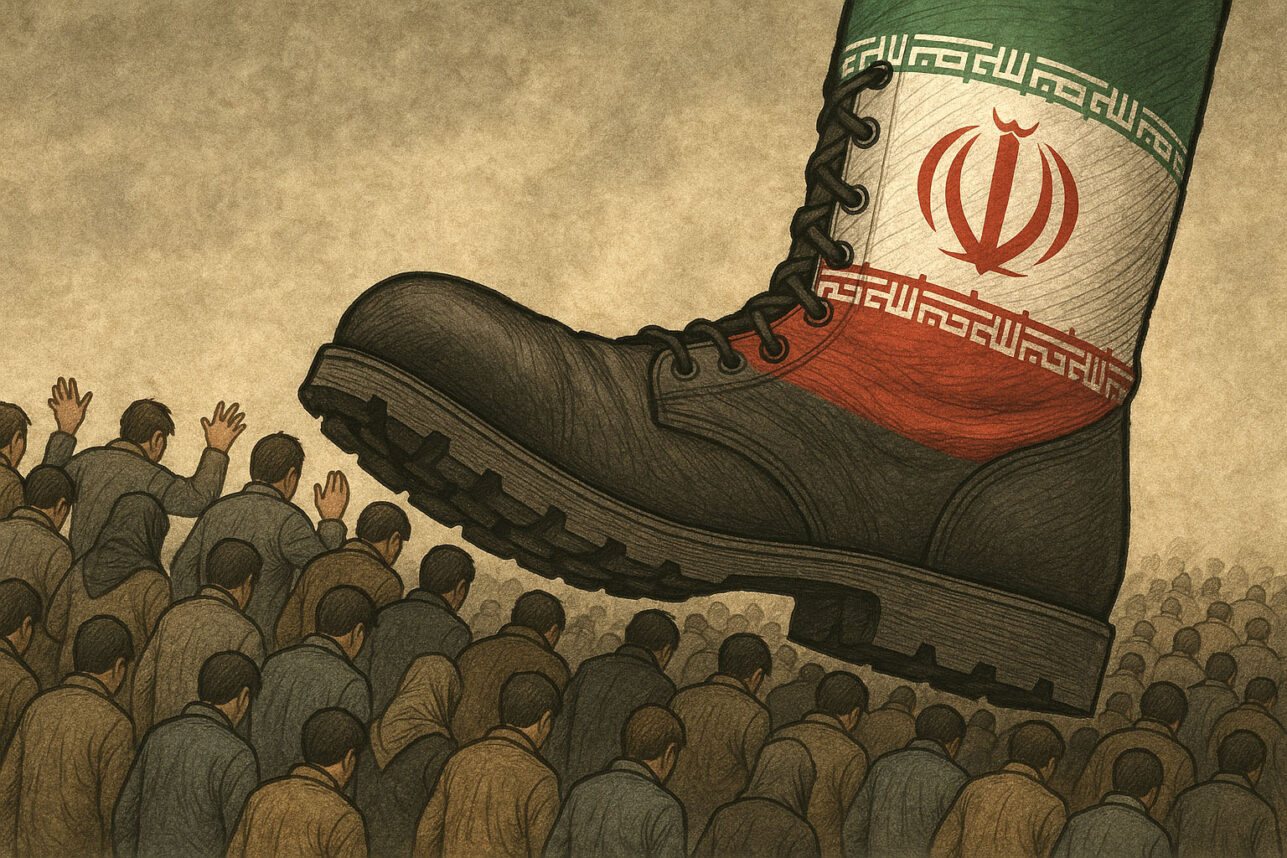

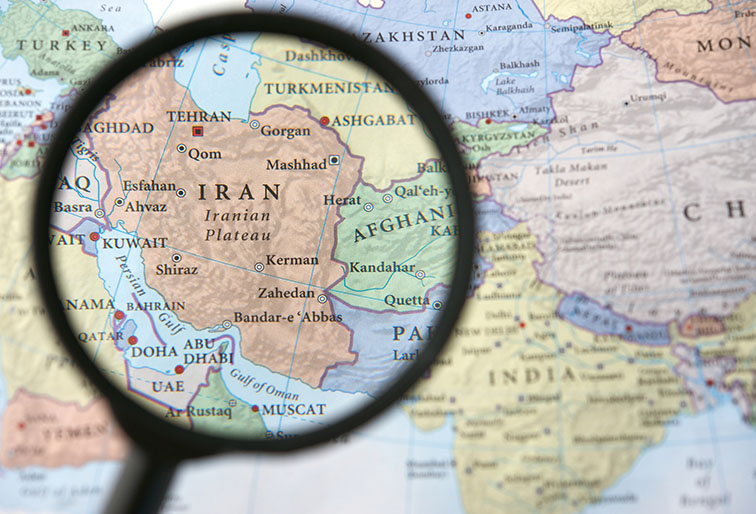
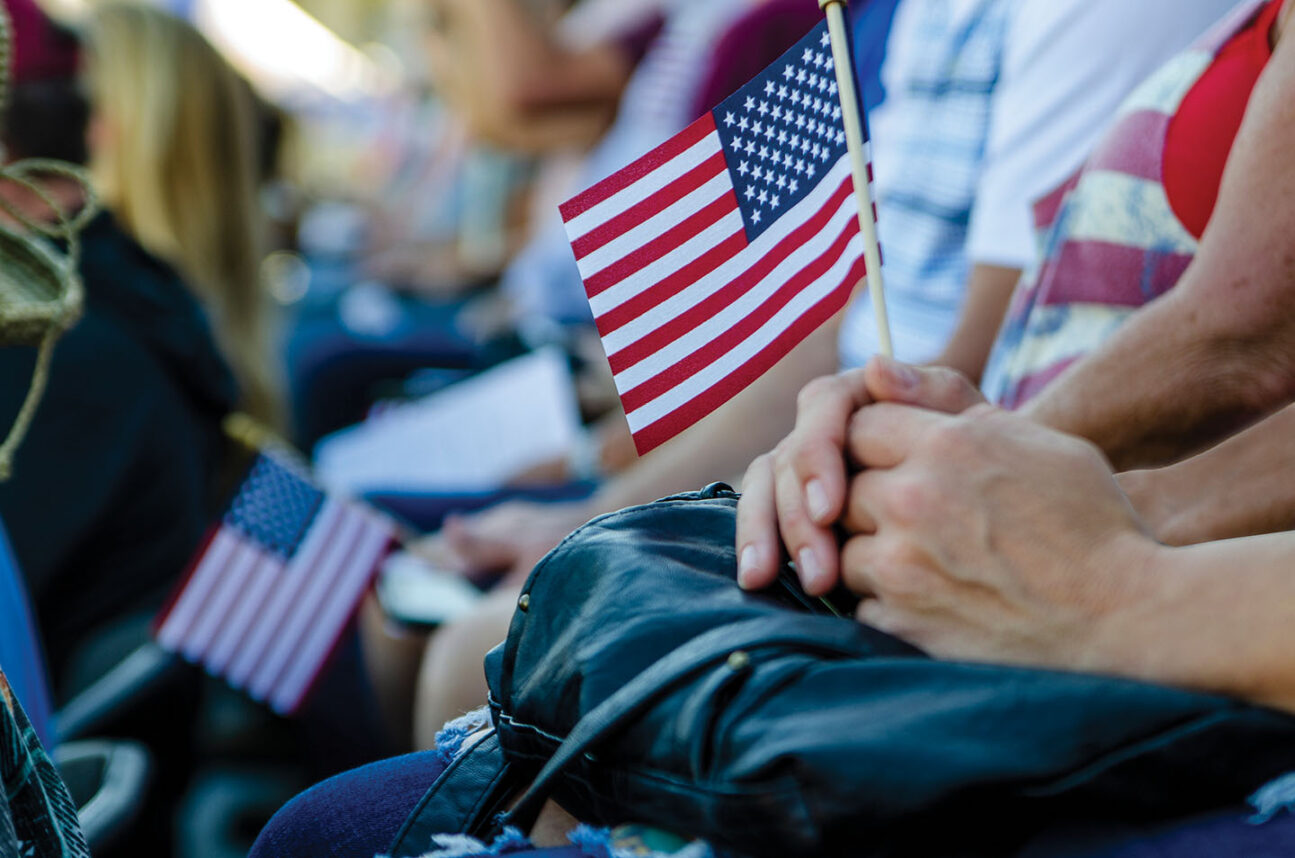
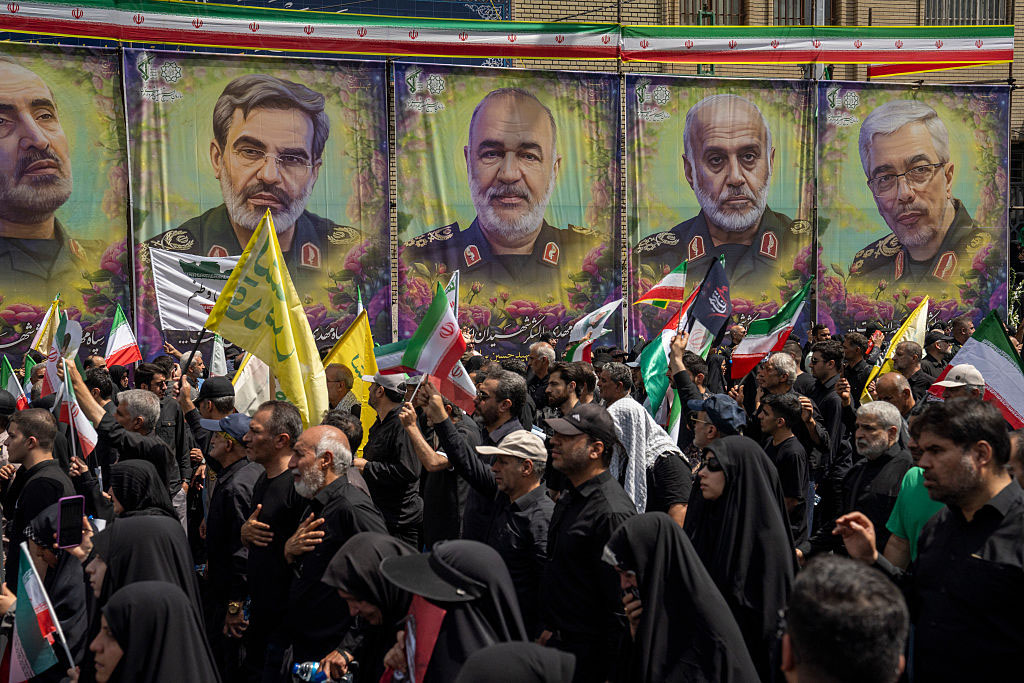















 More news and opinions than at a Shabbat dinner, right in your inbox.
More news and opinions than at a Shabbat dinner, right in your inbox.